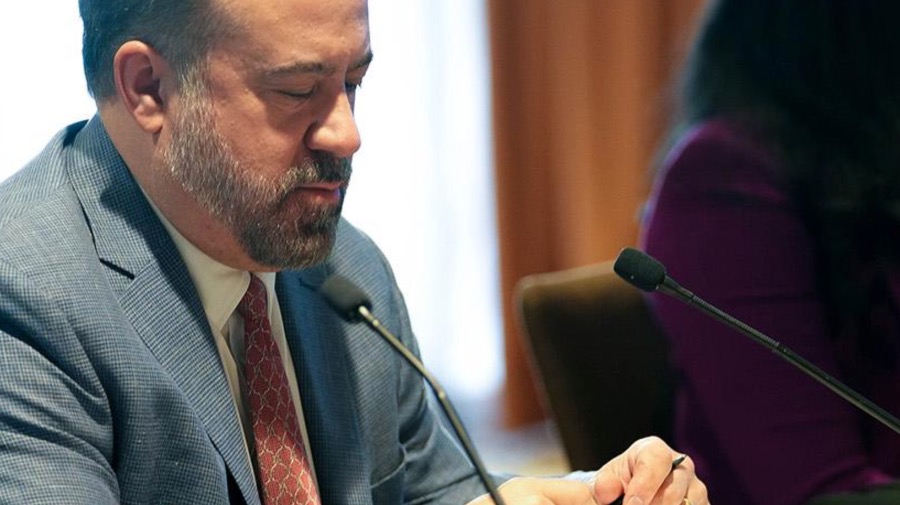
First Responder Network Authority (FirstNet Authority) Board member Sean McDevitt knows telecommunications. With more than 30 years of experience in information technology and telecommunications, Sean’s life’s work has focused on expanding wireless broadband connectivity across the nation. He has worked across the telecom industry — from the mobile network operators building the networks to the equipment manufacturers to the private equity partners investing in telecommunications ventures.
We caught up with Sean to learn about how his telecommunications expertise informs his work on the FirstNet Authority Board.
How have you seen technology evolve during your career?
Technology was a niche field 40 years ago. It was not a part of people’s everyday life, at work or at home. Fast forward to today and technology is so pervasive, you have kids talking about equipment, wireless standards, and which networks are better. Today, a cell phone has more computing power than the computers that sent astronauts to the moon — it is a massive change.
Technology has enabled dramatic societal changes in terms of information sharing, education, and expanded accessibility. For example, I have an elderly relative who can’t see or hear well. When she connects her smartphone to her hearing aids, she can call any family member she wants and chat for as long as she'd like. She can ask her phone to read her a book. It’s just extraordinary.
Technology isn’t quite the oxygen we breathe, but it's pretty close.
How did you become involved with FirstNet?
Working in the telecom industry, I had a front-row seat to many of the communications challenges that public safety experienced, including during responses to the September 11th attacks and the Boston Marathon bombings. There were challenges with network interoperability. There were challenges with network congestion.
Understanding these challenges as a telecom leader, I knew how important FirstNet would be. In the early years, as spectrum was cleared and the FirstNet Authority was established, I watched from afar. At the urging of friends and colleagues, I applied to be on the FirstNet Authority Board. I have always had a strong social service ethic and believe in giving back to our communities. I wanted to use my expertise to serve the first responder community.
Where do you see FirstNet having the greatest impact?
First responders deserve the best tools to address the challenges that they have been uniquely trained to solve. With FirstNet, it comes down to making sure first responders can communicate in any situation. That means providing the priority and preemption that puts them at the front of the line. That means providing coverage so they can communicate in dense urban environments as well as rural areas. It means creating a marketplace for apps that are uniquely designed with first responders in mind. And it means setting up a core network that can route traffic safely and securely. With these features and functions, FirstNet is making a huge impact on public safety today.
What perspectives or expertise do you bring to the FirstNet Authority Board?
My role on the Board is one of support, enhancement, and enablement. When you build out a network as extensive and reliable as FirstNet, there are going to be lots of deliberate choices on where and when to invest. I bring the skills and experience in making those decisions in a telecom environment — from launching new services to evaluating returns on investment to establishing disciplined plans for growth.
I see myself as supporting the great work being done by the FirstNet Authority staff and Board members to ensure first responders get the network and tools they need.
What do you want to accomplish during your time on the Board?
The FirstNet Authority has built a tremendous foundation for the network. With the initial network buildout complete by AT&T, we’re moving from a “design, contract, build” phase to an “operate, maintain, enhance” phase. We need to think about how to prioritize investments to ensure the network evolves to best serve public safety. How do we make the network better? How do we make FirstNet stronger, faster, and more effective for public safety?
I’d love to get to the point where people think to themselves, “What did we ever do before we had FirstNet?”
Why is public safety communication important to you?
Public safety and first responders have an integral role in our world. At its most basic level, you want to know that if something bad happens, there are people there to help you. You want to know that there are people whose mission is to help our loved ones stay safe.
Since the beginning of time, there have been versions of first responders. Anthropologists make the argument that the first evidence of civilization is finding mended bones on ancient skeletons. It means that someone stopped and risked their safety to take care of another person.
We have this instinctive responsibility to take care of others, and I believe that FirstNet is a small part of that. I'll be an even smaller part of making FirstNet successful, but that’s what I hope for and work toward.
